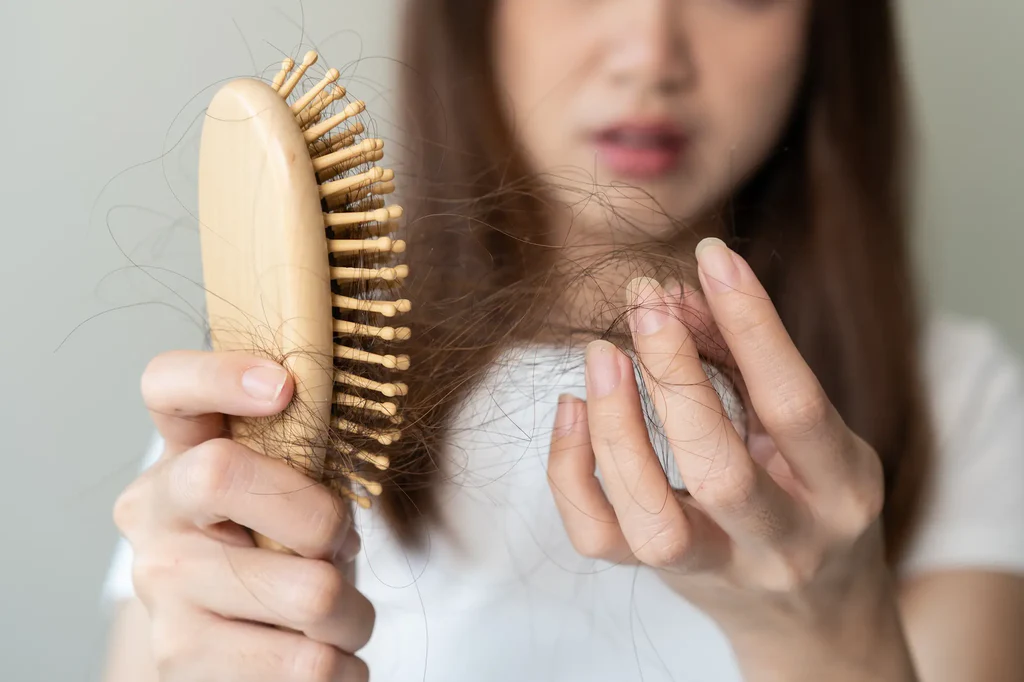Various factors, including vitamin deficiencies, can contribute to issues with thinning and brittle hair. This condition affects both men and women.
Some vitamins are crucial for maintaining healthy hair, and deficiencies in these vitamins can negatively impact hair growth and thickness. Among the vitamins related to hair health, deficiencies in vitamin A, vitamin D, vitamin E, and certain B vitamins are associated with thinning hair.

1. Vitamin A Deficiency Can Lead to Hair Loss
Vitamin A is essential for cell growth, including the cells that make up hair follicles. However, excess vitamin A can also lead to hair loss, and conversely, a deficiency can result in thinning hair.
Vitamin A plays a role in producing sebum (the oil that helps moisturize the scalp and keep hair healthy). Without enough vitamin A, the scalp can become dry, making hair more prone to breakage and loss.
2. Vitamin D Deficiency Affects Hair Follicle Nourishment
Vitamin D is involved in regulating the hair growth cycle and supporting the health of hair follicles. Insufficient vitamin D can disrupt this cycle, leading to increased hair loss and reduced hair thickness.
Ensuring adequate vitamin D intake through sunlight exposure, diet, or supplements is crucial for maintaining optimal hair health.
3. Vitamin E Deficiency Makes Hair Vulnerable to Oxidative Damage
Vitamin E is known for its antioxidant properties, helping protect cells, including those in hair follicles, from oxidative stress.
A deficiency in vitamin E can lead to increased oxidative damage, negatively affecting hair health.
Additionally, vitamin E supports a healthy scalp, and its deficiency can contribute to dryness and inflammation, factors that can lead to thinning hair.
4. Vitamin B Deficiency Affects Keratin Production
B vitamins play an essential role in the metabolism of amino acids (the building blocks of proteins). Since hair is composed of a protein called keratin, adequate B vitamin intake is necessary for healthy hair growth.
In particular, biotin is often associated with hair health, and its deficiency is linked to thinning hair and hair loss. Vitamins B6 and B12 are also crucial for maintaining healthy hair, as they contribute to red blood cell production, supplying nutrients and oxygen to hair follicles.
While these vitamins are vital for hair health, excess intake of certain vitamins can also cause harmful side effects. Therefore, achieving a balance is essential, and a well-rounded, nutrient-rich diet is the most effective way to ensure adequate vitamin intake.
Supplementing vitamins may seem harmless, but there are risks associated with overuse. Additionally, some vitamin supplements can interact with other medications you may be taking. Therefore, always consult a healthcare professional before making any decisions regarding supplements.





